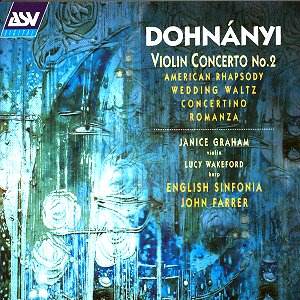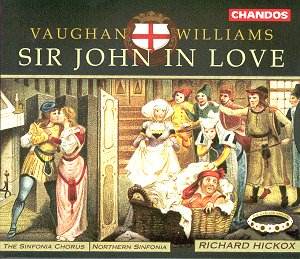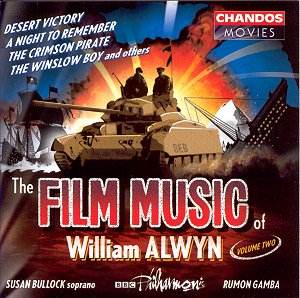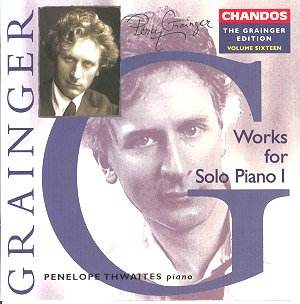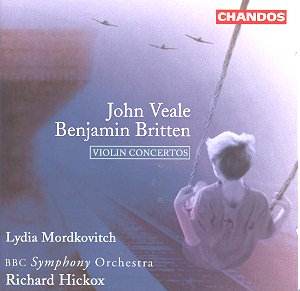 Composer: Benjamin BRITTEN, John VEALE
Composer: Benjamin BRITTEN, John VEALE
Works: Britten: Violin Concerto (1939); Veale: Violin Concerto (1984)
Performers: Lydia Mordkovich (violin), BBC Symphony Orchestra, Richard Hickox
Recording: Chandos CHAN 9910
Duration: 69.57
Date of Recording: November 29–30, 2000
Location: Blackheath Halls, London
The recent release of Britten’s Violin Concerto paired with John Veale’s eponymous work on the Chandos label presents an intriguing juxtaposition of two distinct yet deeply resonant expressions of the twentieth-century violin repertoire. Lydia Mordkovich’s commanding performance, under the assured baton of Richard Hickox, not only illuminates the individual characters of both concertos but also invites a reflection on the socio-political fabric from which these works emerged.
Britten’s concerto, composed in the shadow of impending global conflict during his stay in Quebec, stands as a testament to the composer’s early maturation amid the turbulence of the Spanish Civil War. Lewis Foreman’s insightful notes illuminate the work’s Hispanic inflections, notably through the prefatory timpani theme that reverberates with foreboding. The violin’s entry, echoing the orchestral introduction, is fraught with a sense of anticipation, a harbinger of the deeper tragedies that would soon engulf Europe. This thematic material is marked by a rhythmic urgency that Mordkovich captures with both precision and a palpable sense of emotional weight. Her interpretation eschews the bloodlessness that can accompany Britten’s more cerebral moments, instead opting for a warmth that resonates deeply, particularly in the contrasting vivace section, which evokes Shostakovich’s spiky vigor.
Mordkovich’s reading of the Passacaglia finale reveals a profound understanding of Britten’s tragic-romantic ethos. The echoes of Berg and Shostakovich are palpable, yet it is the violin’s lyrical lament that truly captivates. Here, the interplay of the soloist and orchestra finds a delicate equilibrium, with Mordkovich’s nuanced phrasing and dynamic shading rendering the work’s emotional arc not merely a series of clever motifs but a deeply felt narrative. This is perhaps the finest interpretation I have encountered, surpassing the more clinical readings of Lubotsky and Friend, as her performance allows the music to breathe and evolve organically.
In stark contrast, John Veale’s Violin Concerto emerges as a deeply personal statement, a vivid reflection of an artist reacquainting himself with creativity after a twelve-year hiatus. The opening movement’s orchestral flourish sets a grand stage, and Mordkovich’s ascent into the solo line encapsulates the late-Romantic idiom with an urgency that speaks to Veale’s cinematic background. The thematic interplay, particularly the urgent, rocking motif against the lyrical string lines, evokes a sense of yearning that is both poignant and deeply introspective. This reflective quality is further accentuated in the central Lament, where the solo violin’s delicate harmonics and rising sobs achieve a heartbreaking intimacy, reminiscent of Mahler’s adagietto.
The finale, characterized by a vivacious energy, channels a Waltonian bravado, yet Mordkovich skillfully weaves in the thematic echoes of the preceding movements, reinforcing the emotional continuity of the work. Hickox and the BBC Symphony Orchestra provide a robust foundation, their playing marked by clarity and a rich tonal palette that enhances the concerto’s romanticism. The engineering of this recording is exemplary, allowing for a full dynamic range without the constrictions of modern decibel compression, affording both the soloist and orchestra ample space to navigate the intricate textures of Veale’s writing.
Comparatively, the Veale concerto benefits from a more expansive and confident interpretation than the pioneering effort by Manoug Parikian. Mordkovich’s approach imbues the work with a three-dimensionality that allows it to resonate beyond its historical context, engaging the listener in an emotional dialogue that is both thoughtful and evocative.
In conclusion, this Chandos recording not only champions the rich, if often overlooked, repertoire of John Veale but also reinforces Britten’s standing as a pivotal figure in the evolution of the violin concerto in the twentieth century. The synergy between Mordkovich, Hickox, and the BBCSO results in a compelling narrative that invites listeners to reassess their perceptions of both composers. We are indebted to Chandos for this beautifully recorded disc, which merits a place in the collection of any serious enthusiast of the violin repertoire. As I reflect on this release, my anticipation grows for future collaborations between these artists, particularly in exploring the works of other modern masters such as Lionel Sainsbury.
